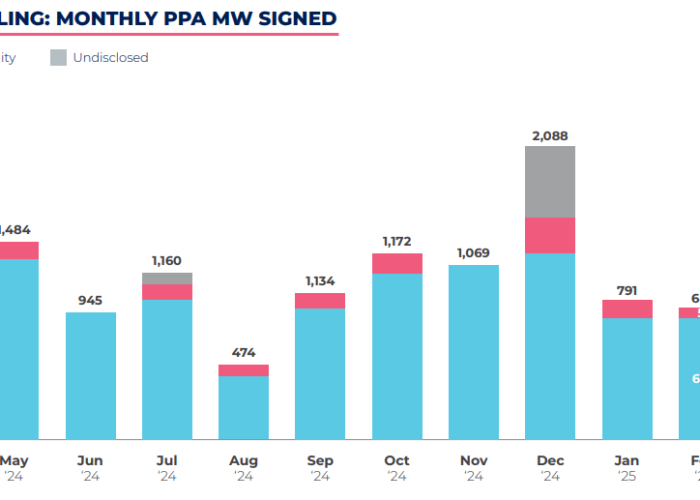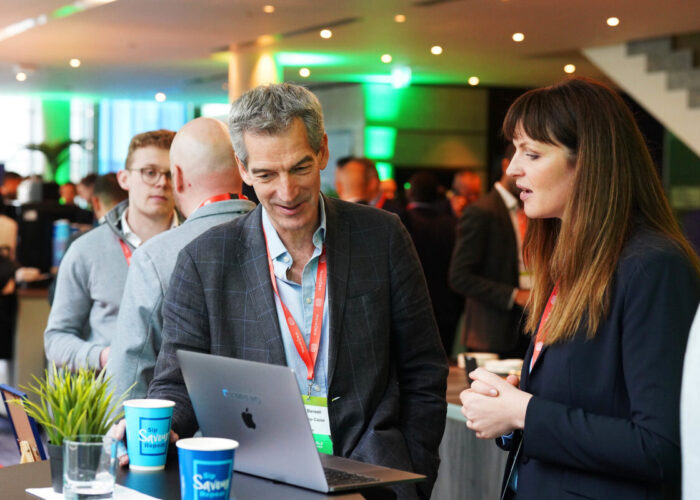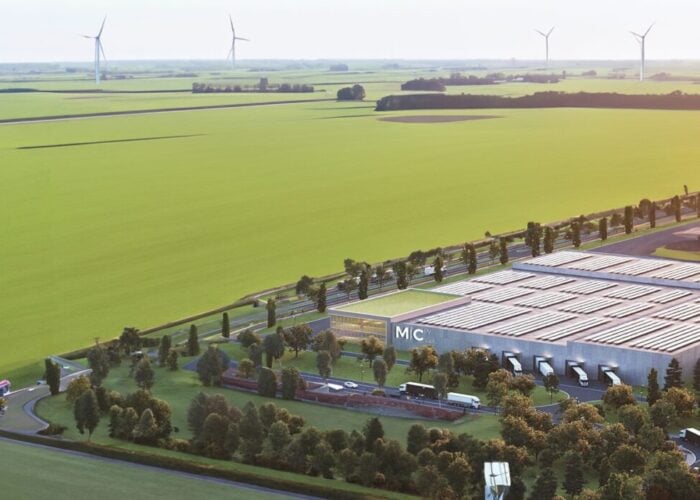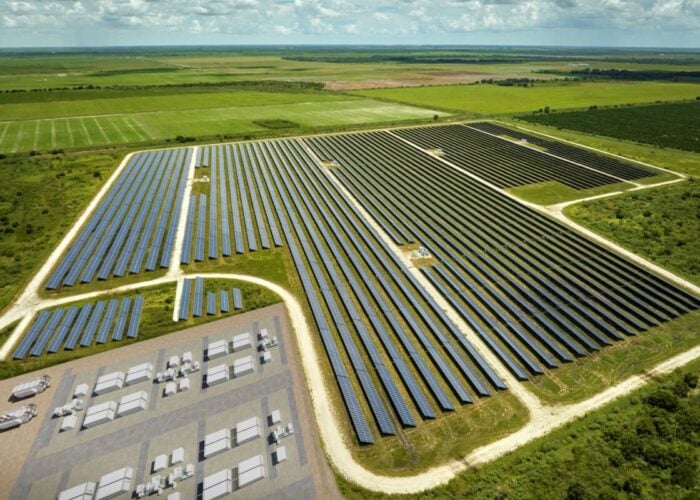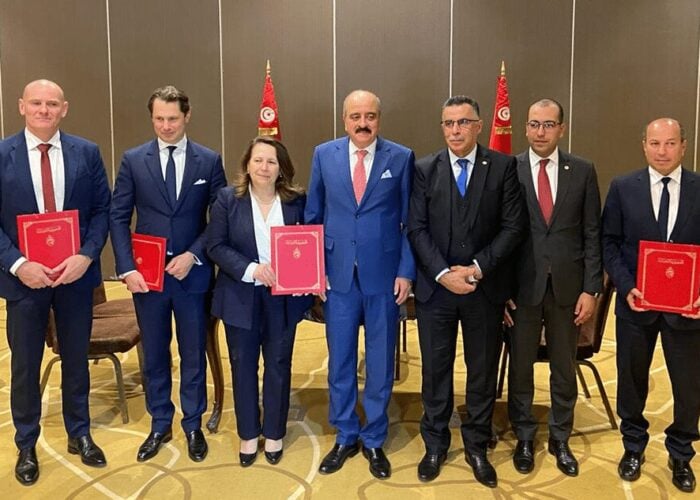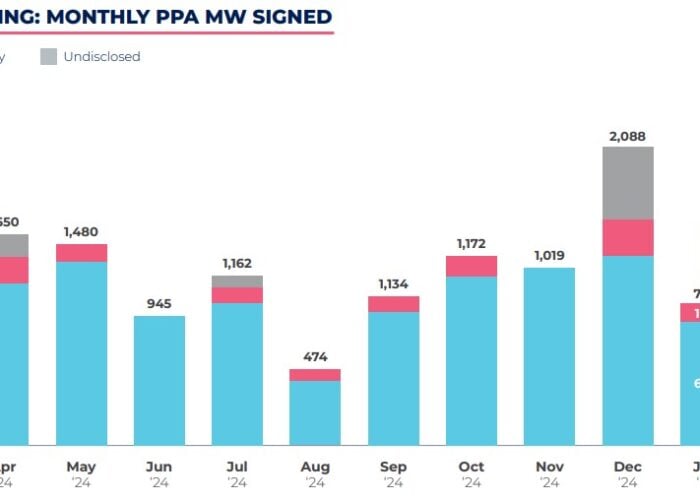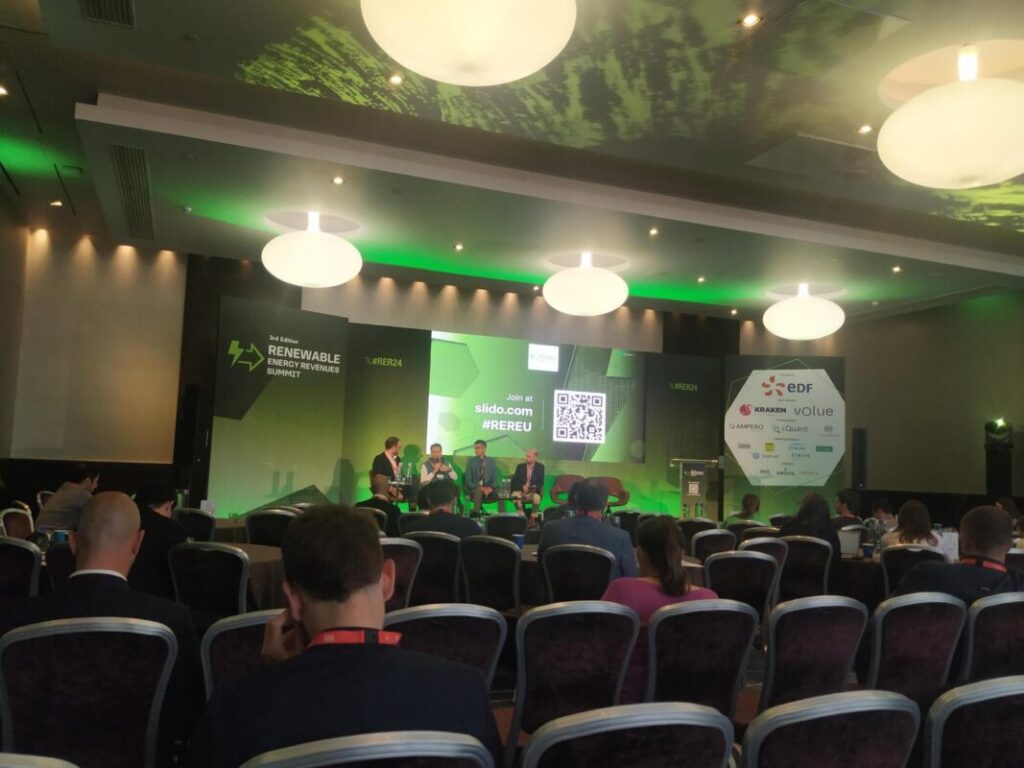
The global power price agreement (PPA) market has become a buyer’s market, according to speakers at Solar Media’s Renewable Energy Revenues Summit, held today in London.
At the second day of the conference, speakers at a panel this afternoon suggested that falling power prices, especially in Europe, have shifted the balance of power in PPA negotiations towards off-takers, which are able to shop around for more favourable deals for renewable energy acquisition.
Unlock unlimited access for 12 whole months of distinctive global analysis
Photovoltaics International is now included.
- Regular insight and analysis of the industry’s biggest developments
- In-depth interviews with the industry’s leading figures
- Unlimited digital access to the PV Tech Power journal catalogue
- Unlimited digital access to the Photovoltaics International journal catalogue
- Access to more than 1,000 technical papers
- Discounts on Solar Media’s portfolio of events, in-person and virtual
Or continue reading this article for free
“In August 2022, we had [power prices] of €600-700/MW (US$650.8-759.3/MW),” said Gabriele Martinelli, manager of European power research, LSEG Power Research. “It seemed crazy, but the PPA prices at there time, were not half of that, [around] 20-25% of that total.
“Now, power prices are much lower,” Martinelli continued, speaking about corporate PPAs in particular. “They’re back to pre-crisis [levels], around €95-100/MW (US$103.1-108.5/MW), and the relationship between PPAs and prices is back to how it was before [the crisis].
He also suggested that Europe “should be a seller’s market” in these conditions, but that high volatility in the market has kept the balance of power in favour of off-takers. Prices are getting “better,” he said, but the recent volatility in both power prices, and PPA prices, have made it difficult for power producers to sell at a premium.
“A lot of investors have had to contract because, from an equity perspective, they’re not comfortable with merchant risk,” added Ricardo Folgado, managing director of mergers and acquisitions at Exagen, who went on to suggest that investors with a greater risk appetite could benefit in this environment.
“[Corporate PPAs] can play a very valuable role, but they can take a year or two [to yield results]; [it’s beneficial] for an investor that has more appetite to take merchant exposure,” he continued. “I think [the corporate PPA market] is more of a buyer’s market, as buyers can afford to shop around; the balance has shifted towards corporates, unlike previously, when the power price was high.”
On a panel yesterday, Ross Irvine of EDF spoke of the challenges for new companies looking to engage in the corporate PPA space, as interest grows in renewable acquisitions among off-takers and potential off-takers.
However, corporate buyers are “not very sophisticated,” according to Alexandre Soroko, head of PPA advisory at Greensolver, compared to utiliies as off-takers. He also suggested that this lack of sophistication has impacted corporate off-takers’ decision-making process, namely in investing in hedges as a way to counteract the volatility present in the market currently.
“For PPAs that have access to physical assets, that is a hedge!” said Soroko. “[Off-takers] and corporates are looking for hedges.”
Renewable PPAs are becoming increasingly commonplace in the corporate space, with Microsoft and Brookfield signing a massive 10.5GW offtake agreement in the US and Europe, valued at over US$10 billion, earlier this month.
PV Tech’s publisher Solar Media has been hosting the Renewable Energy Revenues Summit on 21-23 May 2024 in London. The event will explore PPA design, the role of effective policy, evolving strategies for large energy buyers and more. For more information, go to the website.

